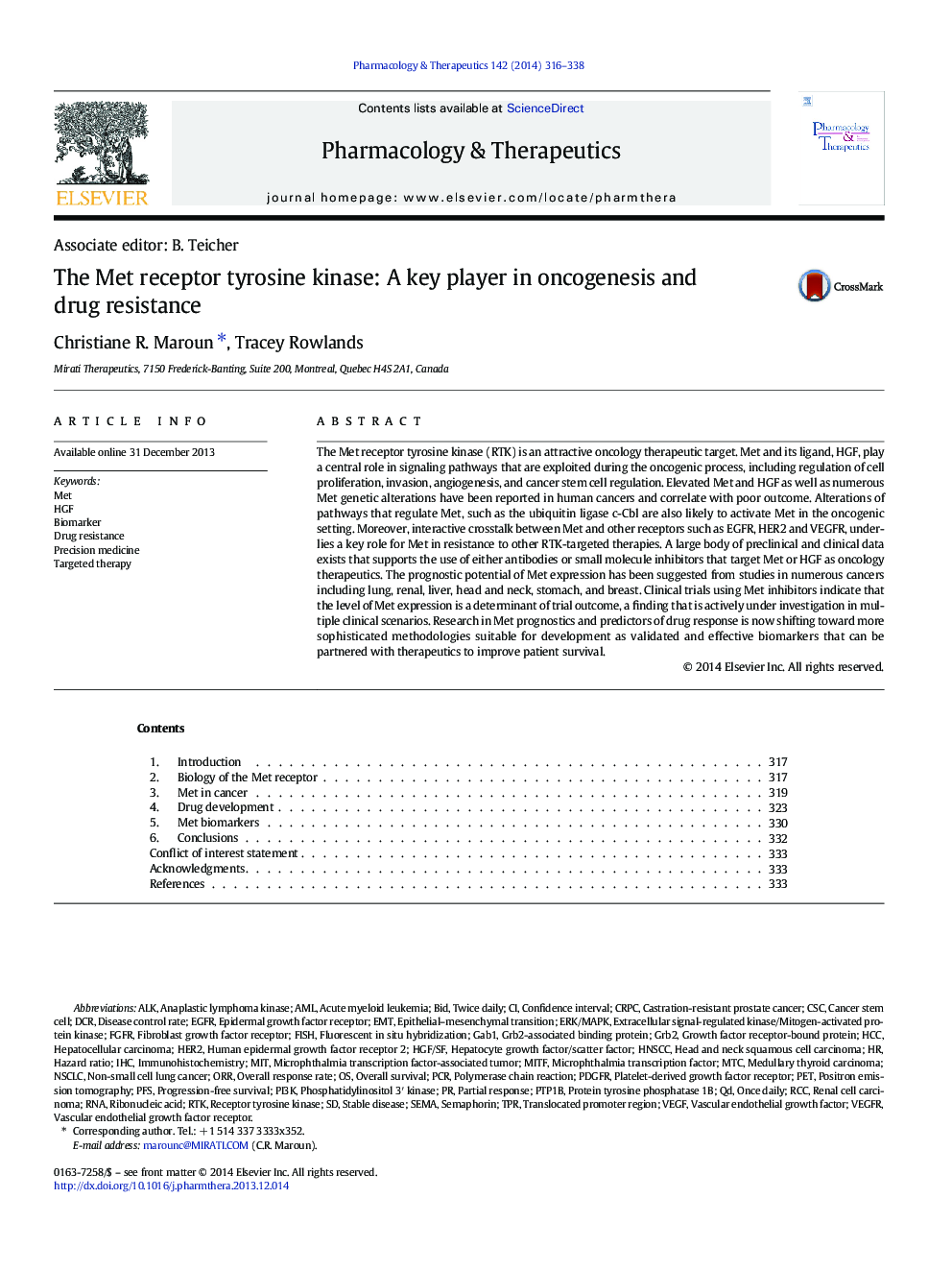| کد مقاله | کد نشریه | سال انتشار | مقاله انگلیسی | نسخه تمام متن |
|---|---|---|---|---|
| 2563192 | 1127501 | 2014 | 23 صفحه PDF | دانلود رایگان |

The Met receptor tyrosine kinase (RTK) is an attractive oncology therapeutic target. Met and its ligand, HGF, play a central role in signaling pathways that are exploited during the oncogenic process, including regulation of cell proliferation, invasion, angiogenesis, and cancer stem cell regulation. Elevated Met and HGF as well as numerous Met genetic alterations have been reported in human cancers and correlate with poor outcome. Alterations of pathways that regulate Met, such as the ubiquitin ligase c-Cbl are also likely to activate Met in the oncogenic setting. Moreover, interactive crosstalk between Met and other receptors such as EGFR, HER2 and VEGFR, underlies a key role for Met in resistance to other RTK-targeted therapies. A large body of preclinical and clinical data exists that supports the use of either antibodies or small molecule inhibitors that target Met or HGF as oncology therapeutics. The prognostic potential of Met expression has been suggested from studies in numerous cancers including lung, renal, liver, head and neck, stomach, and breast. Clinical trials using Met inhibitors indicate that the level of Met expression is a determinant of trial outcome, a finding that is actively under investigation in multiple clinical scenarios. Research in Met prognostics and predictors of drug response is now shifting toward more sophisticated methodologies suitable for development as validated and effective biomarkers that can be partnered with therapeutics to improve patient survival.
Journal: Pharmacology & Therapeutics - Volume 142, Issue 3, June 2014, Pages 316–338